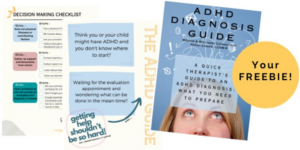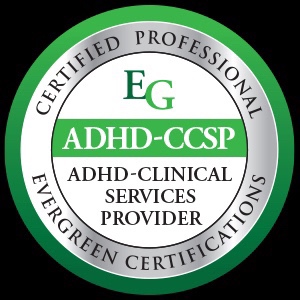1) Why can’t my doctor or my child’s pediatrician diagnose ADHD? Answer: They might be able/willing to! Many doctors are an excellent place to start for concerns around ADHD and anxiety. Sometimes physicians or nurse practitioners might want a more detailed assessment or might have questions around possible co-occurring diagnoses or rule-outs, so they refer their patients to an outside mental health provider or psychologist.
2) We suspect Autism Spectrum Disorder and ADHD, would your practice still be able to provide an evaluation? Answer: If you have concerns regarding ASD, we can still provide you with an ADHD evaluation and also provide a thorough Autism screening. As diagnosing clinicians in NYS, we are qualified to diagnose ASD, however some presentations may be complicated by other factors that would be better suited for social cognition testing, learning disorder testing, etc. in order to be confident in the diagnosis. If that is the case, you’ll want to look for a licensed psychologist (PhD) or sometimes, neuropsychologist (PhD or MD) to perform the appropriate testing. For children, sometimes the school district can also provide an Autism screening. We can help guide you on this path, if necessary.
3) We are concerned that our child has a learning disability, can you help us with that? Answer: While we can (and do!) screen for some intellectual and learning disabilities, your child’s pediatrician and school are the best places to start a discussion regarding possible learning disabilities. If, during the course of our evaluation, we suspect there might be the presence of a learning disability, we will communicate that to you ASAP and guide you in the right direction, however we are not able to diagnose specific learning disabilities.
4) I am an adult and think I might have ADHD, is it too late to seek a diagnosis? Answer: No! It is never too late to seek the proper medical care. If you are over the age of 65, we may recommend a memory or neurological consultation first, to rule out any normal age-related brain changes or non-age related brain changes. Check out Upstate Geriatric Care for a memory evaluation.
5) I am scared that if we receive an ADHD diagnosis, someone will force me or my child to take medication. Answer: A diagnosis is a set of criteria that explains what is happening in your or your child’s life at that time, and can guide treatment. Treatment for ADHD includes education, awareness, accommodation and modification of the environment and sometimes medication. ADHD medications have been researched for a long time, are safe and highly effective, but some people opt to not take them or some people cannot tolerate the side effects.
No one should force ADHD medication upon you or your child, but please, get educated first-there are a lot of myths out there about ADHD medications. Just like anything else in life- there can sometimes be risks to taking medication, but there can also be risks to not taking medication. Among them: accidents, lower academic success, financial mistakes, poor socialization, low-self esteem, anxiety, etc. Learn more here.
Learn about all your treatment options so you can make an informed choice in your care or your child’s care.
6) I am scared to have the label of ADHD for me or my child. Won’t people have negative judgements or will my child think there is something wrong with them? Answer: People have judgments and we cannot control what others think. Our job is to help you or your child to understand current strengths and needs and learn how to be a good advocate for what needs are present. Often times if we do not give the proper “label”, like ADHD, individuals can end up “labeling” themselves as “bad, lazy, stupid, annoying, weird”, or worse. Sometimes the proper terminology actually frees the individual to be themselves without shame and find a supportive community! Once the evaluation is complete, you have your report with any diagnosis listed and YOU can show it to whomever you want, or don’t want.
Our hope is that individuals come away from this process with more understanding, patience, compassion and acceptance for themselves and their loved ones.



